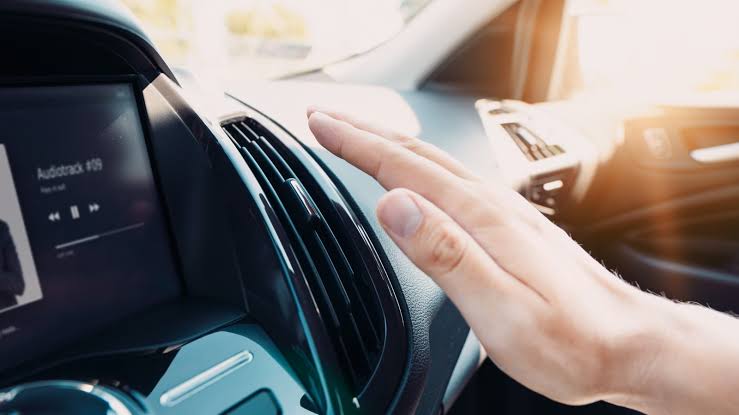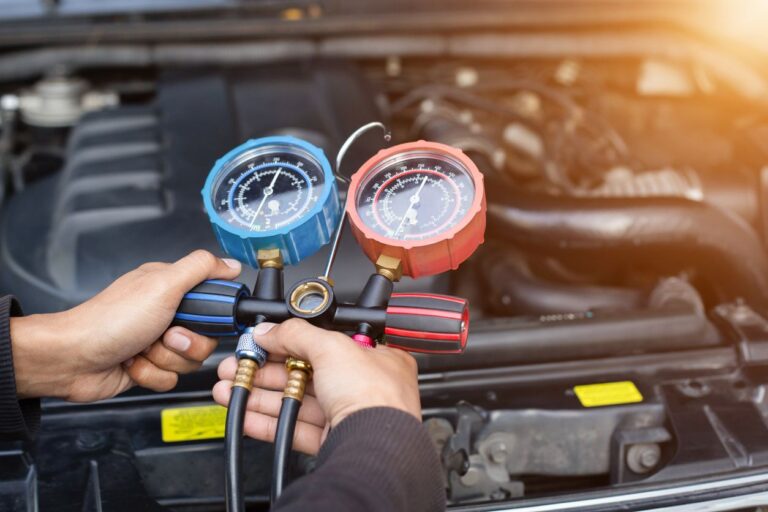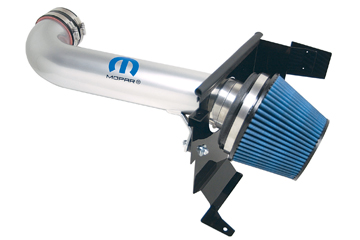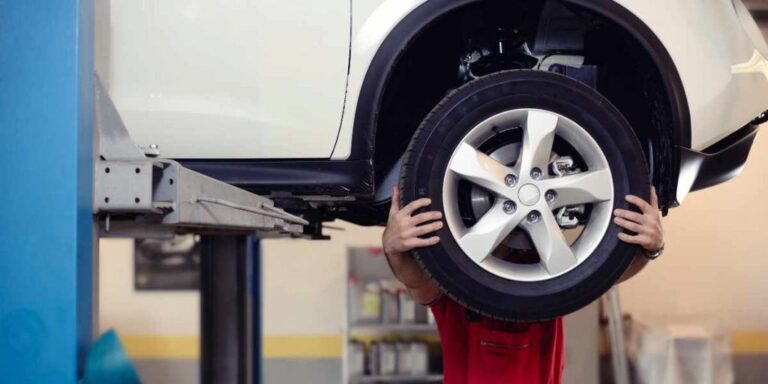Will Low Brake Fluid Cause the ABS Light to Come On?

Low brake fluid is a common issue that can affect the braking system of your vehicle. While many people are aware that low brake fluid can impact regular braking performance, it can also trigger the ABS light to come on. Understanding how brake fluid levels are linked to the Anti-lock Braking System (ABS) can help you diagnose the problem and take action.
How Brake Fluid Affects the ABS System
Brake fluid is essential for the proper functioning of your vehicle’s braking system, including the ABS. The ABS is designed to prevent the wheels from locking up during heavy braking, allowing the driver to maintain control. Brake fluid helps transfer the force applied at the brake pedal to the braking components at the wheels. If there is insufficient fluid in the system, it can cause issues, including triggering the ABS light.
How Low Brake Fluid Can Trigger the ABS Light
1. Fluid Level and Brake Performance
- Impact on Braking Pressure: Low brake fluid can lead to decreased braking pressure, making it harder to engage the braking system properly. When the ABS detects an issue with the brake pressure, it may activate the ABS light.
- Impact on ABS Sensors: The ABS system uses sensors to monitor wheel speed and brake force. If the brake fluid level is too low, it can interfere with the sensor’s ability to function correctly, causing the ABS light to appear.
2. Fluid Leaks
- Leaks in the Brake System: Low brake fluid may also indicate a brake fluid leak in the system. If brake fluid is leaking, the ABS system could become compromised, triggering the ABS light to warn the driver of a potential safety issue.
3. Electrical Connections
- Sensor Malfunctions: In some cases, low brake fluid can also affect the electronic sensors used by the ABS. These sensors rely on proper fluid levels to function correctly. If the fluid is low, the sensors may send faulty readings, causing the ABS light to activate.
Common Signs of Low Brake Fluid and ABS Light Activation
If you notice any of the following symptoms, it could be an indication that low brake fluid is triggering the ABS light:
- Soft or Spongy Brake Pedal: A low brake fluid level can cause the brake pedal to feel soft or spongy, making it harder to stop the vehicle.
- Increased Stopping Distance: With low brake fluid, your vehicle may take longer to stop, as the braking system isn’t functioning optimally.
- ABS Warning Light: If the ABS light appears on your dashboard, it could be a sign that the braking system is compromised, potentially due to low brake fluid.
What Should You Do If the ABS Light Comes On Due to Low Brake Fluid?
1. Check Brake Fluid Level
- Inspect the Brake Fluid Reservoir: The first step is to check the brake fluid level. The brake fluid reservoir is typically located near the driver’s side of the engine bay. If the fluid level is below the minimum line, it indicates a low brake fluid level.
2. Refill Brake Fluid
- Add the Correct Brake Fluid: If the brake fluid level is low, add the appropriate type of brake fluid recommended by your vehicle manufacturer. Be sure to avoid overfilling the reservoir.
3. Inspect for Leaks
- Check for Fluid Leaks: If the fluid was low, there could be a leak in the brake system. Inspect brake lines and the master cylinder for signs of leakage. If you find any leaks, it’s essential to have them repaired immediately.
4. Test the Brake System
- Drive Safely: After adding fluid, start the vehicle and drive it at a low speed to check if the brake system is functioning correctly. If the ABS light remains on or if you notice any other issues with braking, you should seek professional help.
5. Consult a Mechanic
- Seek Professional Assistance: If adding brake fluid doesn’t turn off the ABS light or you suspect a more serious issue with the ABS system, it’s best to have your vehicle inspected by a professional mechanic.
Why Low Brake Fluid Should Not Be Ignored
Low brake fluid can compromise your vehicle’s braking system, leading to increased stopping distances or even brake failure. Since the ABS system is an important safety feature, it is crucial not to ignore the ABS light. Low brake fluid is often a sign of an underlying issue, such as a fluid leak, worn brake components, or other problems that can affect overall vehicle safety.
Conclusion
Yes, low brake fluid can cause the ABS light to come on. The brake fluid is essential for the proper functioning of both the conventional braking system and the ABS. If the fluid level is low, it can cause issues with braking performance and trigger the ABS light. To address the issue, check the brake fluid, refill it if necessary, and inspect for any leaks or malfunctions. If the ABS light remains on after adding fluid, it is advisable to consult a mechanic to ensure your braking system is in good working condition.
FAQs
1. Can low brake fluid affect regular brakes?
- Yes, low brake fluid can lead to reduced brake performance, including a soft or spongy brake pedal.
2. How do I know if my brake fluid is low?
- Check the brake fluid reservoir in your engine bay. If the fluid level is below the minimum line, it is low.
3. How do I add brake fluid to my car?
- Open the brake fluid reservoir and add the recommended brake fluid for your vehicle until it reaches the proper level.
4. Can low brake fluid cause my car to lose braking power?
- Yes, low brake fluid can reduce braking pressure, making it harder to stop the vehicle effectively.
5. How do I fix low brake fluid?
- Add brake fluid to the reservoir, but if it’s low due to a leak or other underlying issue, it’s important to have the system inspected and repaired by a professional.





